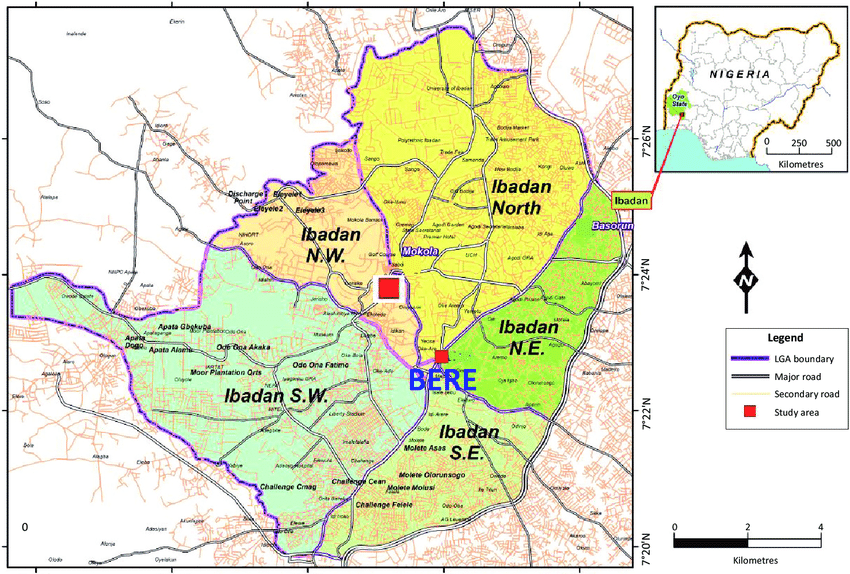Nigeria has made a name for itself within and outside Africa. It is known worldwide as the Giant of Africa, a title it earned due to its population and fast-growing economy. With a total population of over two hundred and six million, one hundred and forty thousand (206,140,000) people, it is the most populated African country—almost twice the population of Ethiopia, the second-largest country in Africa. It has also been predicted that by 2050, Nigeria will become the third most populated country in the world, and many of these people will be eking out a living in the largest cities in Nigeria.
Nigeria is a Large Country with Many Cities and Regions
Because of its large population and landmass, Nigeria consists of cities with equally large landmass and population density. The country has 36 states divided into six geopolitical zones (northeast, north-west, south-east, south-west, south-south, and north-central). These various regions comprise different cities with varied features, including tribes, languages, population, landmass, and infrastructure.
The northwest region is the most populated area of the country and equally has the largest landmass. Although infrastructural development is spread across the country, it is not evenly distributed. The city with the highest level of infrastructure and economic activities is in the southwestern part of the country. Also, the languages and tribes vary greatly from one region to another and even within regions.
Ten Largest Cities in Nigeria by Population and Infrastructural Development
Among the 36 states in Nigeria, some are more densely populated and have better infrastructural development than others. Below is a list of the top 10 most populated cities that have massive infrastructures.
1. Lagos
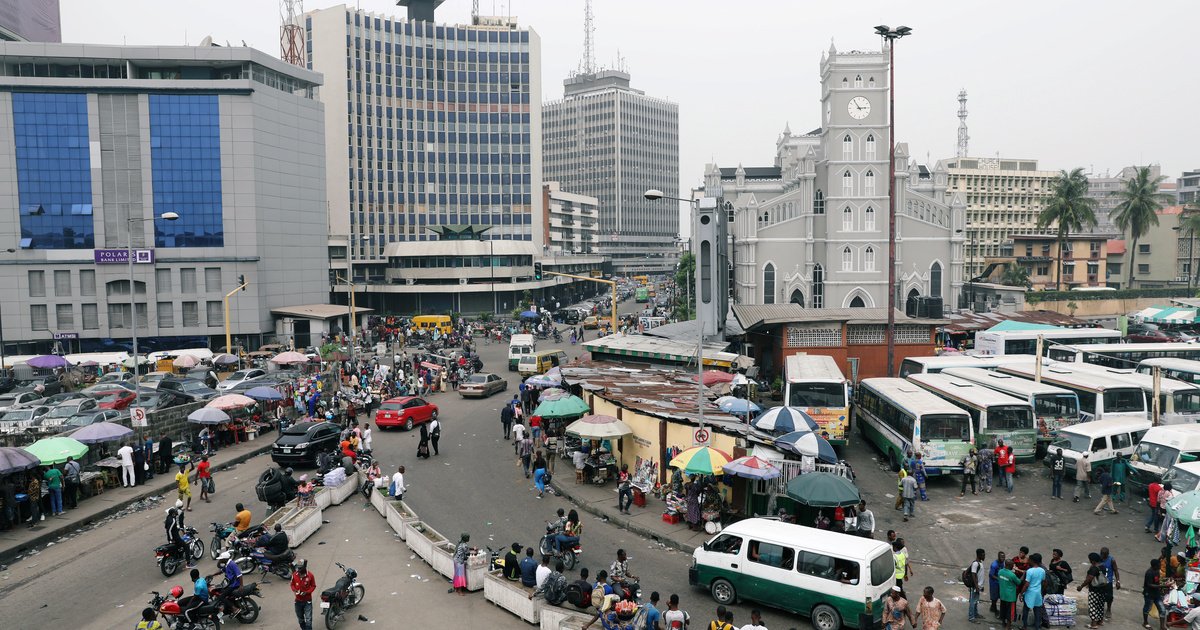
- State: Lagos
- Population: 21 million
- Population Density: 2,607km-2
- Geopolitical Zone: South-west
- Others: Yoruba is the dominant ethnic group
Lagos is arguably the largest city in Nigeria. With about twenty-one million (21,000,000) people, it is recorded as the most populated city in West Africa. Oftentimes, when people abroad talk about Nigeria, they refer to Lagos because it is the hub for almost all economic activities. Despite the high standard of living, many people still migrate to Lagos because of the ample opportunities available there. Being the center of economic activities in the country, it houses major industries and headquarters.
The state is home to the renowned Nollywood industry. Also, most companies like Dangote Cement, BUA, cement, and even foreign companies like Jumia and MTN are found there. The well-known Murtala Muhammed International Airport is also located here. In total, the state houses about thirty-three thousand, four hundred and fifty-eight (30,458) companies.
Irrespective of its large economic activities, about 66% of the population lives in the slum. This is due to the high cost of living and huge social margin in the area. However, Lagos has a good number of employment opportunities. This city is equally known for its unending traffic congestion obviously caused by the large population.
2. Kano

- State: Kano
- Population: 16 million
- Population Density: 442km-2
- Geopolitical Zone: North-West
- Others: Dominating ethnic groups are Hausa and Fulani
This is the second most populated city in the country, and it is mainly occupied by Hausa and Fulani tribes. With a population of sixteen million (16,000,000) people, Kano State is the major commercial state of the North. It has active industries in agriculture, food processing, and textile. Most of the industries are centered on industrial estates. Some significant structures present in Kano are the newly constructed Kanawa International market, an international airport, and several educational institutions. The state has about one thousand, two hundred and forty-seven (1,247) companies.
The cost of living in Kano State is low, unlike Lagos. However, the current security challenges facing the northern part of the country have resulted in fewer employment opportunities and reduced migration into this area.
3. Ibadan

- State: Oyo
- Population: 6 million
- Population Density: 831 km-2
- Geopolitical Zone: South-West
- Others: Dominating ethnic group is the Yoruba
Ibadan is the capital of Oyo State, one of the most popular states in the Western part of Nigeria. The city has a population of about six million (6,000,000) people, and its available infrastructure and employment opportunities have continued to attract more people to the city. Known for its commercial and trade activities, Ibadan houses about one thousand, five hundred and fifty-three (1,553) companies. It is also the home to Nigeria’s first university, the University of Ibadan (UI), and a domestic airport.
The city has a fair standard of living with very affordable accommodation. However, the increasing population has put the infrastructures under high pressure, which has resulted in some adverse environmental effects, including poor sanitation, increased slump dwellings, and open drainage.
4. Abuja
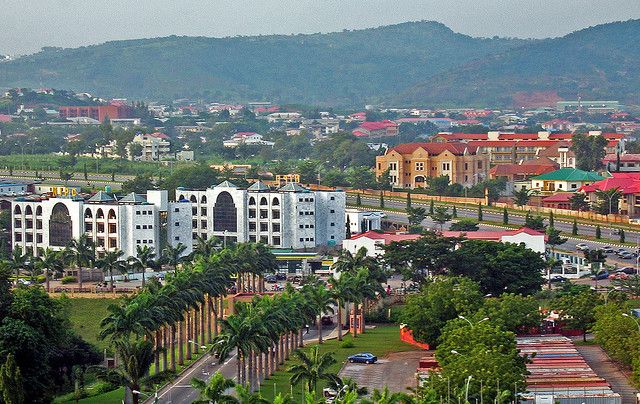
- State: Abuja
- Population: 3,464,123
- Population Density: 439 km-2
- Geopolitical Zone: North Central
- Others: Dominating ethnic group is Hausa
The capital of Nigeria, Abuja, is the fastest growing city in Africa and one of the fastest in the world. It is home to the presidential villa, Aso Rock, embassies, government ministries, and parastatals. The popular Nnamdi Azikiwe International Airport is located here among several other infrastructures. The city has about eighteen thousand, three hundred and fifty-one (18,351) companies and has high employment opportunities.
With an estimated population of three million, four hundred and sixty-four thousand, one hundred and twenty-three (3,464,123), the city still experiences an influx of people. The increased influx of people into Abuja is no doubt in search of greener pastures. The cost of living in the city is very high, but the surrounding rural areas have a cheaper cost of living.
5. Port Harcourt
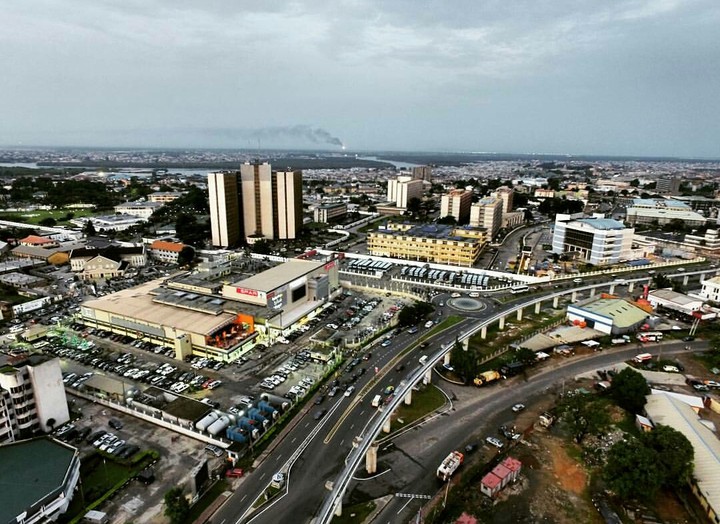
- State: Rivers
- Population: 3,179,402
- Population Density: 2726 km-2
- Geopolitical Zone: South-South
- Others: Dominating ethnic groups are Ijaw, Ikwerre, and Ogoni
This prominent city has a population of about three million, one hundred and seventy-nine thousand, four hundred and two (3,179,402) people. Founded in 1912 by Fredrick Lugard, the city is mainly known for possessing crude oil. The oil was discovered in 1956, and it led to the building of several companies and the creation of employment opportunities. Port Harcourt has continued to grow as more people migrate there searching for jobs in different oil companies.
The city houses seven thousand, six hundred and fourteen (7,614) companies, including Chevron, Royal Dutch Shell, etc. It also has a Port Harcourt International Airport located on the outskirts of the city. Most of its higher institutions are government-owned, and it is equally known to have a high standard of living.
6. Benin City

- State: Edo
- Population: 1,781,999
- Population Density: 953 km-2
- Geopolitical Zone: South-South
- Others: Dominating ethnic group is Fon
The city of Benin is known for its rich culture and history. What was formerly known as the Benin Kingdom is the capital city of Edo state, but they are one of the few Nigerian cities that managed to retain their culture post-colonization. The city has continued to grow and has a current estimated population of one million, seven hundred and eighty-one thousand, nine hundred and ninety-nine (1,781,999) people.
The major reason many people visit this city is because of its tourist attraction sites. Places like the Palace of the Oba of Benin, the National Museum, and the King’s square have been a huge attraction to Nigerians and foreigners. Having about eight hundred and seventy-nine (879) companies, the city provides employment opportunities but not as many other populated places.
The city is best known for its artworks, including bronze, casting, and metalwork, which are mostly related to their culture. It also has a domestic airport that serves transportation within the country.
7. Aba
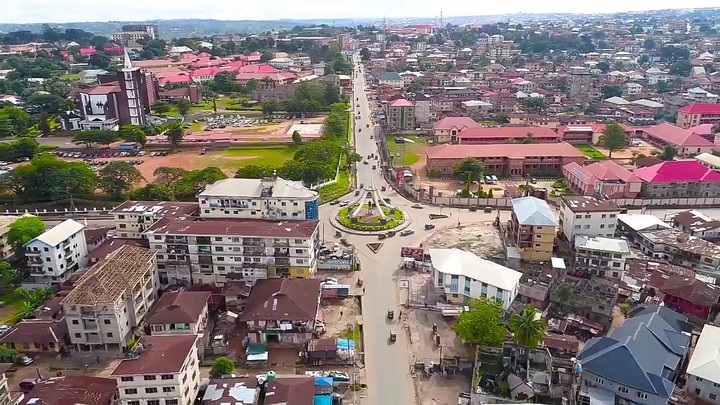
- State: Abia
- Population: 1,114,388
- Population Density: 7400 km-2
- Geopolitical Zone: South-East
- Others: Dominating ethnic group is Igbo
This commercial hub of the east is located in Abia State and is known for the production of several goods. It has four hundred and eight (408) companies and an estimated population of one million, one hundred and fourteen thousand, three hundred and eighty-eight (1,114,388) people.
The majority of the people in this area are independent businessmen, and buying and selling is the order of the day. The popular Ariaria market is found here, and many people visit this city mainly for commercial and business purposes. The high population density has had a negative toll on the infrastructures of the city. It is known to have bad roads and an unclean environment.
8. Maiduguri
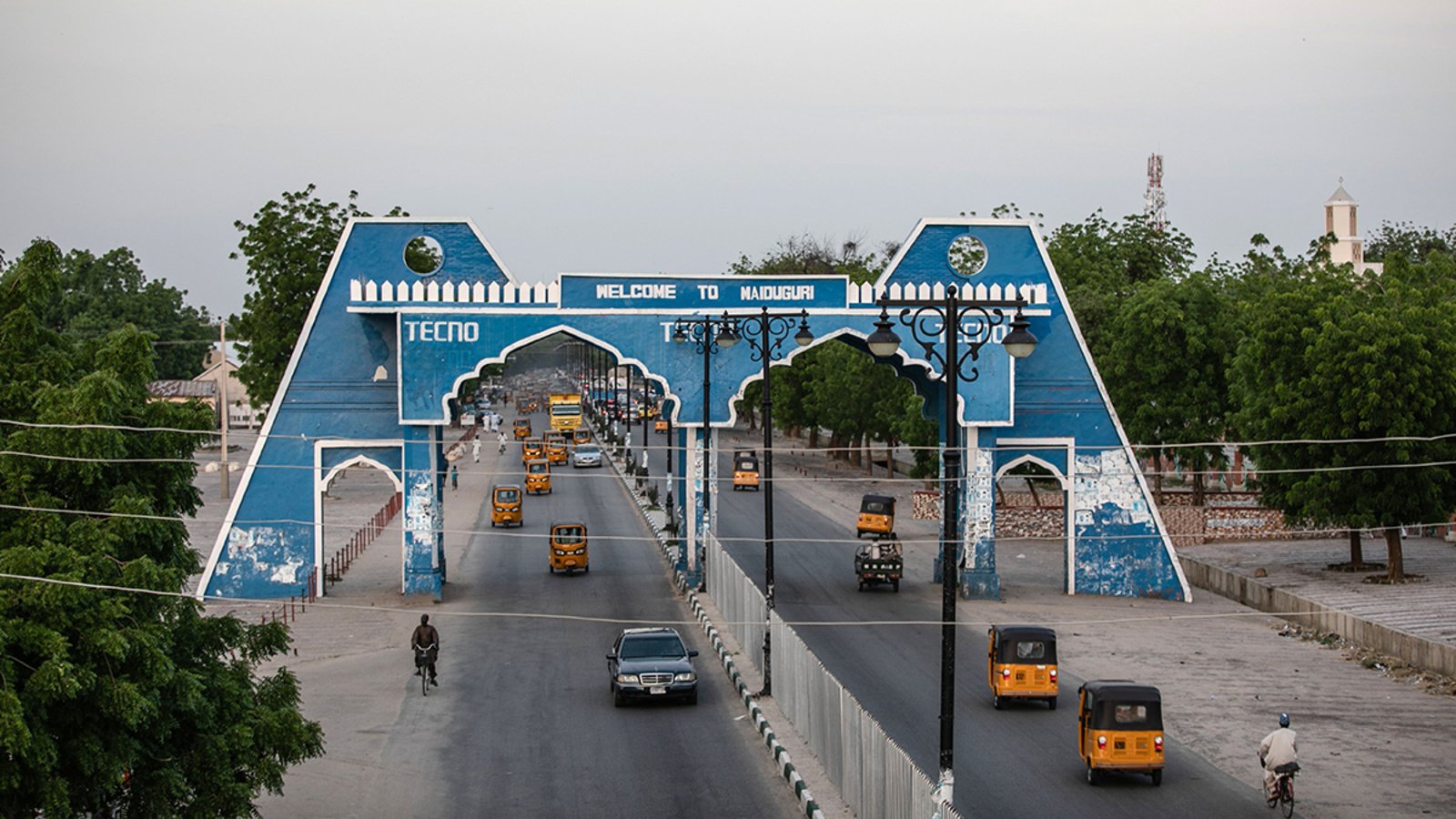
- State: Borno
- Population: 802,988
- Population Density: 3964 km-2
- Geopolitical Zone: North-East
- Others: Dominating ethnic group is Kanuri
Maiduguri is one of the largest cities in Nigeria, and it is located in the Northeastern region. It has a population of eight hundred and two thousand, nine hundred and eighty-eight (802,988) people. The city has about one hundred and forty-four companies and not as much infrastructure as other large cities. It is known for trading and has a low standard of living. One of its known infrastructures is the Maiduguri International Airport. The city does not experience much migration of people due to the current security challenges in the northern part of Nigeria.
9. Zaria
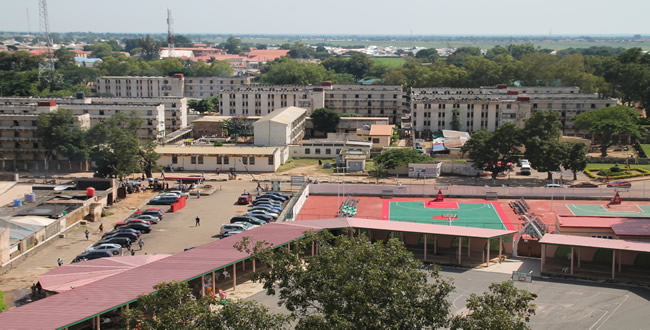
- State: Kaduna
- Population: 736,098
- Population Density: 1234.6 km-2
- Geopolitical Zone: North-West
- Others: Dominating ethnic groups are Hausa and Fulani
Zaria was formerly called Zazzau, and it is one of the seven old “Hausa City-State.” It was renamed after the popular queen Amina Zaria. The city has an estimated population of seven hundred and thirty-six thousand, ninety-eight (736,098) people. It is mainly involved in agriculture and produces groundnut, tobacco, and cotton, among other things. Though it has an estimated one hundred and sixty-eight (168) companies, there is no massive population increase due to security problems. It also has a low standard of living.
10. Jos
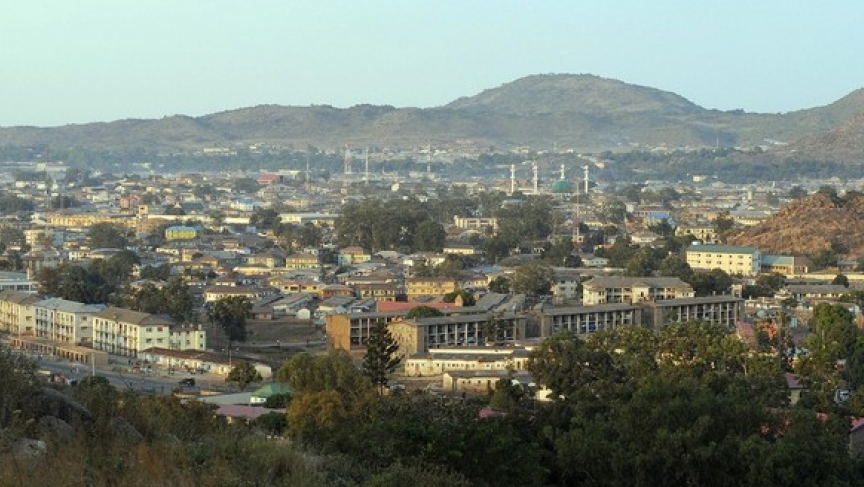
- State: Plateau
- Population: 917,289
- Population Density: 451 km-2
- Geopolitical Zone: North Central
- Others: It comprises several ethnic groups
Known for its extreme weather conditions, Jos is a city in Plateau state. It has a lot of tin and columbite, making it a major mining area in the country. The city has an estimated population of nine hundred and seventeen thousand, two hundred and eighty-nine (917,289) people. It has about one thousand, seven hundred and sixty (1,760) companies that provide fair job opportunities in the city. Jos is a hill resort and center of tourist attraction. Like a few other states on this list, it has a low standard of living.
Summary of Top Ten Cities with Largest Population and Infrastructure in Nigeria
- Lagos
- Kano
- Ibadan
- Abuja
- Port Harcourt
- Benin
- Maiduguri
- Zaria
- Aba
- Jos
Ten Largest Cities in Nigeria by Landmass
The northern states in Nigeria are known to possess the largest landmass when compared to other regions. However, when it comes to cities, one will notice that the cities with the largest landmass are not restricted to the northern region. This is because most of the areas in the north with large landmass are not well developed. Below is a list of the top ten cities with the largest landmass in Nigerian.
1. Gusau
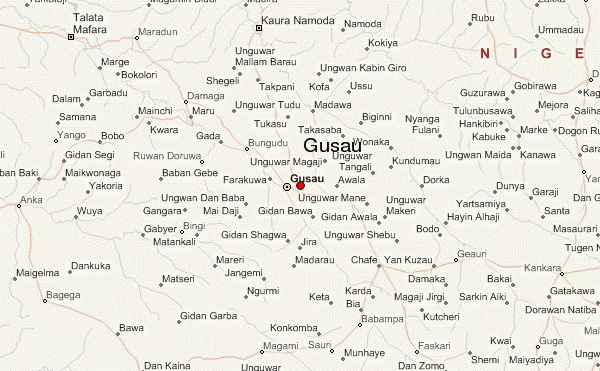
- State: Zamfara
- Land Mass: 3364 km/sq
- Population: 528,400
- Geopolitical Zone: North-West
- Others: located on Sokoto river
The capital of Zamfara State, Gusau, has an estimated population of five hundred and twenty-eight thousand, four hundred (528,400) people. Although it has no major geographical feature, the region with large size of 3364 km/sq. is known for its agricultural activities and production of crops like cotton, tobacco, groundnuts, etc. It is located in the North-Western part of the country. Gusau has been an important commercial northern town right from the days of the colonial masters. It was also an administrative center with good road and rail networks for the movement of agricultural produce in and out of Gusau.
2. Ibadan
- State: Oyo
- Land Mass: 3080 km/sq
- Population: 6 million
- Geopolitical Zone: South-West
- Others: located on seven hills
Ibadan, the capital city of Oyo, is located in seven hills with an average elevation of seven hundred (700) feet. It is approximately one hundred miles away from the Atlantic ocean with a high population of about six million (6,000,000) people. Its large landmass of 3,080 km/sq. also includes several zoological and botanical gardens. The city is unarguably the 3rd largest city in Nigeria after Lagos and Kano. Ibadan is also a major trading center for agricultural products like palm oil, rubber, cotton, cocoa, timber, and cassava. It is strategically located along the Lagos – Kano rail route and is also home to several industries that deal in the production of food, textile, health and cosmetics products, tobacco, leatherworks, furniture, etc. Apparently, there is enough land to accommodate all these industries and the labor force they need to work with.
3. Oyo
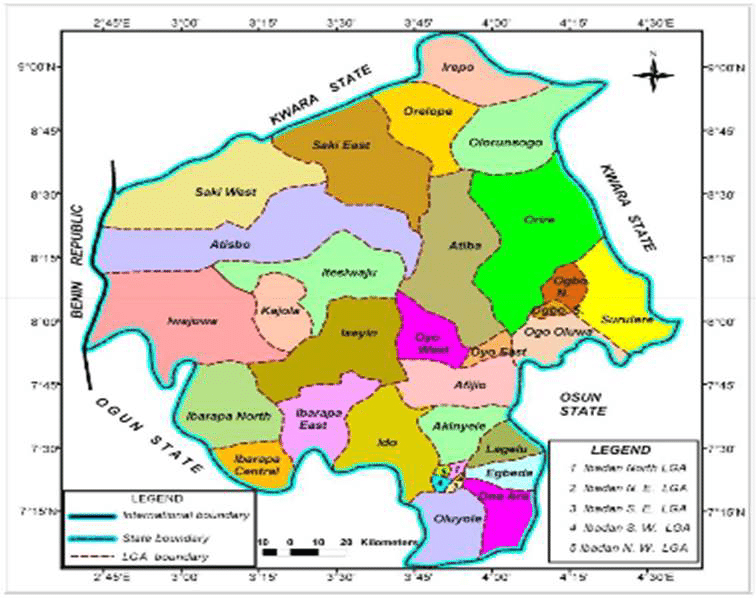
- State: Oyo
- Land Mass: 2427 km/sq
- Population: 441,729
- Geopolitical Zone: South-West
- Others: Seat of Alaafin of Oyo
Oyo is one of the major cities in the western part of Nigeria, and it is the popular seat of the Alaafin of Oyo, 32 miles away from Ibadan. With a large landmass of 2427 km/sq., Oyo accommodates about four hundred and forty-one thousand, seven hundred and twenty-nine (441,729) people. The main activity here is agriculture.
4. Ife
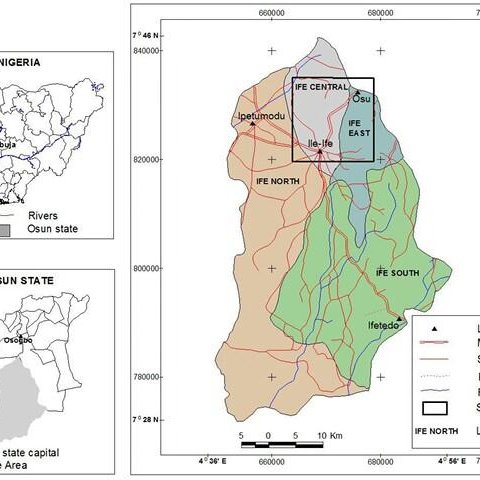
- State: Osun
- Land Mass: 1791 km/sq
- Population: 384,863
- Geopolitical Zone: South-West
- Others: the legendary birthplace of humankind
The city of Ile-Ife, also called Ife-Lodun, is located in Osun State, the western part of Nigeria. Ife lies at the junction, where roads from Ondo, Ilesha, and Ibadan meet. It is considered the holy city and legendary birthplace of mankind. Its vast landmass of 1791 km/sq. is occupied by an estimated three hundred and eighty-four thousand, eight hundred and sixty-three (384,863) people.
The city has great cultural significance in the Yoruba kingdom and even its name Ife means place of dispersion. There are traditional claims that Ife was created by deities Oduduwa and Obatala. Today, the landmass that comprises Ife is divided into four local governments viz Ife East, Ife South, Ife North, and Ife Central.
5. Abuja
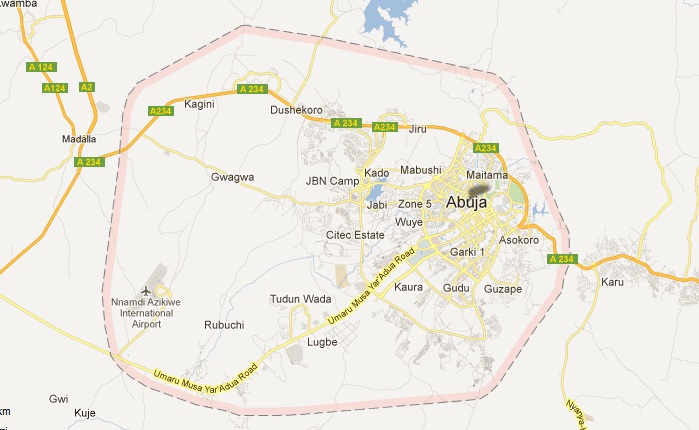
- Location: Abuja
- Land Mass: 1769 km/sq
- Population: 3,464,123
- Geopolitical Zone: North Central
- Others: Located on Chukuku hills
The capacity of Nigeria is one of the fastest-growing cities in the world, located in the heart of the nation. The city built on the large Chukuku hills has an estimated population of three million, four hundred and sixty-four thousand, one hundred and twenty-three (3,464,123) people. The 1769 km/sq. the area also has a favorable climate compared to other northern cities.
As one of the largest cities in Nigeria, it is worthy to note that the high cost of living within Abuja city center has made some of the people who earn a living by working in Abuja rent or even build homes in a neighboring state like Nasarawa (Nyanya axis). This has on its own made such new settlements a beehive of commercial activities, which has brought development to such places.
6. Kuje

- Location: Abuja
- Land Mass:1644 km/sq
- Population: 246,400
- Geopolitical Zone: North Central
- Others: Covered with a lot of greenery
Like is a suburb of the capital territory. It has a landmass of 1644 km/sq. with lots of greenery and high agricultural activities, which is why it is often called the “food basket of Abuja.” The city has an estimated population of two hundred and forty-six thousand, four hundred (246,400), and it lies on the southern end of the Abuja International Airport.
Kuchiyako is the most developed area in Kuje, Abuja. Kuje is also a busy market city with many roadside stores scattered all over the city selling wares that range from provisions, drugs and cosmetics, building materials, telecommunications equipment, etc. In the center of the city is a market held every 4 days where fresh foods like vegetables, meat, smoked fish are all sold. Household goods, fabrics, shoes, clothes, etc., are also sold there.
7. Benin
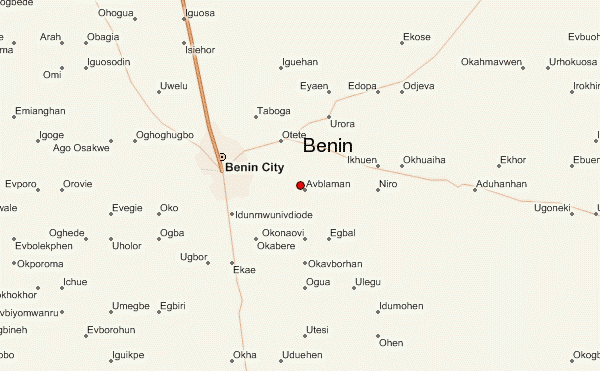
- State: Edo
- Land Mass: 1204 km/sq
- Population: 1,781,999
- Geopolitical Zone: South-South
- Others: it has a rich culture
As one of the largest cities in Nigeria, the great Benin City of Edo State has a landmass of 1204 km/sq. and is located on a branch of the Benin River. It is situated along the highway that connects Lagos to the East. The city is blessed with artworks and rich culture. It also has many cultural artifacts and an estimated population of one million, seven hundred and eighty-one thousand, nine hundred and ninety-nine (1,781,999) people.
8. Lagos
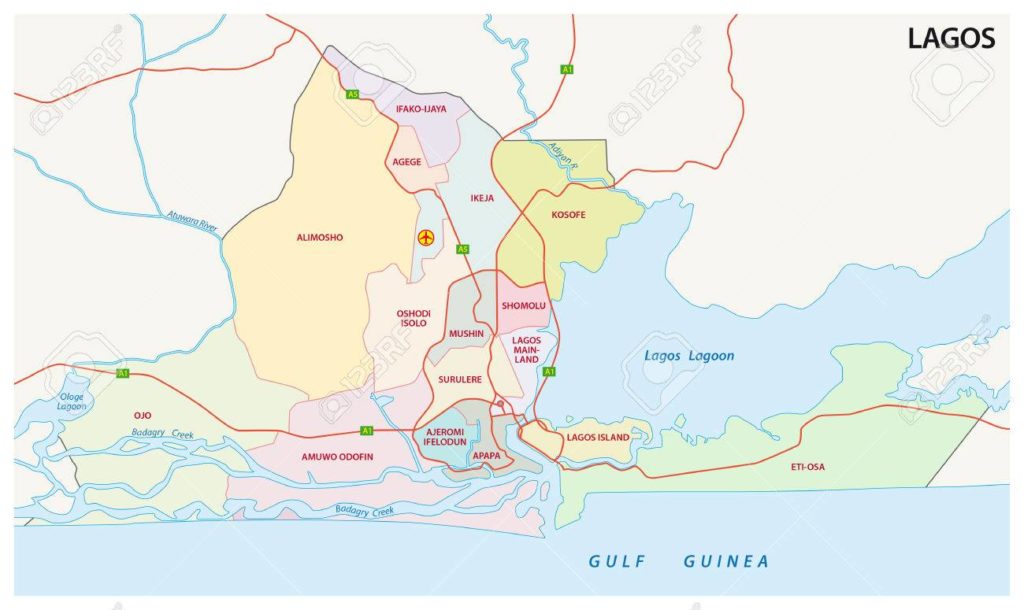
- State: Lagos
- Land Mass: 999.6 km/sq
- Population: 21 million
- Geopolitical Zone: South-West
- Others: Most populated state in Nigeria
The most populated city in Nigeria has a landmass of 999.6 km/sq. The topography of the land is mainly covered by sand bars, islands, and lagoons. On the Bight of Benin, in the Gulf of Guinea, the Lagos Lagoon is home to many Lagosians, and the area is referred to as the Lagos Island. The estimated population of the entire state is about twenty-one million (21,000,000). The area is known for its high economic and commercial activities, albeit with a high cost of living.
There is also no doubt that Lagos is one of the most crowded places in Nigeria, with an ever-expanding influx of people from different parts of the country. This has made it difficult for people to get decent housing in the city. As a result, many Lagosians live in undesirable parts of Lagos.
9. Akure
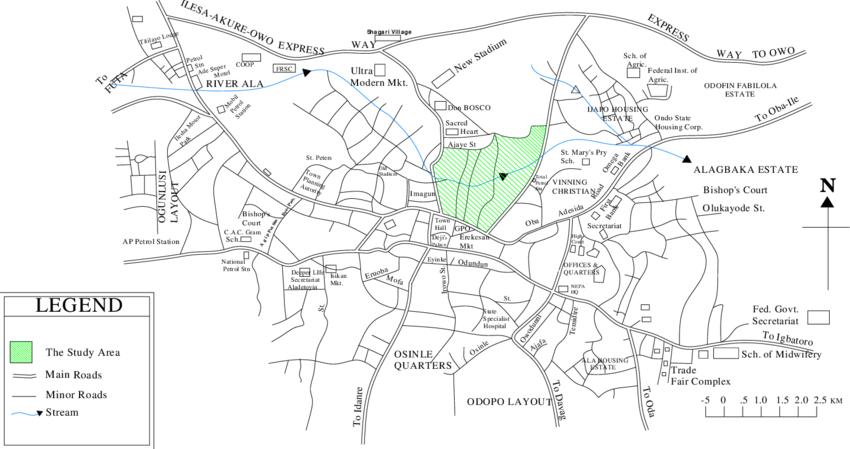
- State: Ondo
- Land Mass: 991 km/sq.
- Population: 690,533
- Geopolitical Zone: South-West
- Others: Built on hills
Akure is the capital city of Ondo State, located in the southwestern part of Nigeria. The town was built in some of the forested Yoruba hills, and it lies at the junction of Ado-Ekiti, Ilesha, and Owo roads. The city has a landmass of 991 km/sq. that houses an estimated population of six hundred and ninety thousand, five hundred and thirty-three (690,533) people. It is a center of agricultural activities and also has other manufacturing industries.
10. Abeokuta
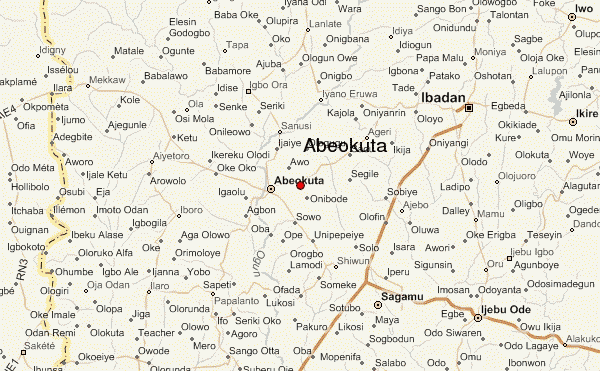
- State: Ogun
- Land Mass: 879 km/sq.
- Population: 543,723
- Geopolitical Zone: South-West
- Others: Located at the bank of the gun river
Abeokuta, which is one of the largest cities in Nigeria with the most landmass, is located at the east bank of the Ogun River and is surrounded by large rocks. Its landmass of 879 km/sq. is home to an estimated five hundred and forty-three thousand, seven hundred and twenty-three (543,723) people. Like most western regions, it is a center for agriculture. The city was a walled town in the past, and relics of the wall can still be seen to date.
Summary of Top Ten Cities with the Largest Landmass in Nigeria
- Gusau
- Ibadan
- Oyo
- Ife
- Abuja
- Kuje
- Benin city
- Lagos
- Akure
- Abeokuta
